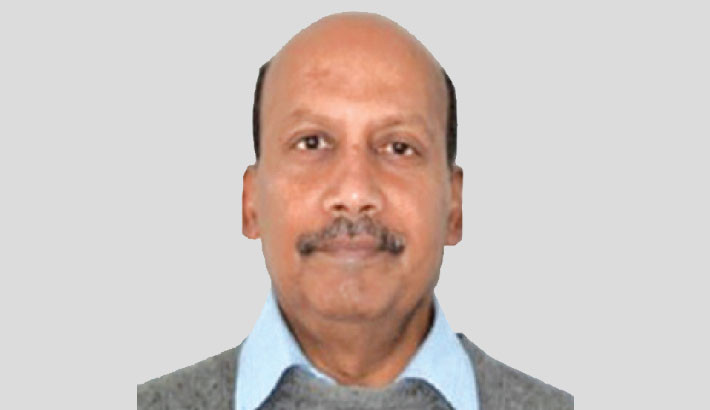India-Bangladesh Strategic Partnership Essential for Economic Development
Taufiqur Rahman
Published: 02 Oct 2024

Chief Adviser Professor Muhammad Yunus said that the relationship with India should be based on fairness and equality. These are two key principles for partnership. I would go one step further. Our relationship should be based on strategic economic interests that will serve both nations well. Our new democratic status and strategic value make us a key player in the Indo-Pacific region. A stable Bangladesh serves India’s own political interests.
Dr Yunus believes in three zeros for the world - zero poverty, zero unemployment, and zero net carbon emissions. I am sure he also wants the same for Bangladesh. Forty-seven million or 28% of the population belong to15 to 29 years age group. As 41 per cent of young people aged 15-24 years are not in education or employment, we need major economic development to create millions of new jobs. To pursue high economic growth to alleviate poverty, Bangladesh needs to heavily invest now in health, education, skills development, political stability, and employment generation.
India is the fifth largest economy in the world and is on its way to become fourth largest economy within next 10 years. Bangladesh economic development will depend on access to large markets, and we need duty free access to India market for our goods and services. This will create economic opportunities for millions of Bangladeshis. China has provided duty free imports of Bangladesh products. India is also one of the large technology countries. We will benefit from partnerships with India’s technology companies. Our IT sector can benefit from partnership with Indian companies.
Our partnership with India can be both at the federal and state levels. Bangladesh can initiate partnerships with Indian states that are already doing very well economically. We also should form partnership with Indian states adjoining our border. Chief Ministers of these bordering states must be invited for discussion on how to foster closer economic partnerships with Bangladesh.
India is also our strategic competitor in garments and shrimp export. Recent India budget calls for massive increase in garments export, a threat we should not take lightly. Our garments can find market in India as we are low cost and have the infrastructure to rapidly expand capacity. In FY 2023, India imported $2.2 billion worth of products from Bangladesh while we imported 12.20 billion from India. This trade imbalance must be addressed urgently. Bangladesh is the largest source of foreign tourists for India. We should provide visa free entry for Indian tourists like Nepal, Thailand, UAE, and Sri Lanka. Bangladeshi workers in India sent $6.6 billion remittances in 2023 while Indian workers in Bangladesh sent over $3.7billion. India ranks number one for remittances for Bangladesh, much higher than Saudi Arabia. We should discuss how more Bangladeshi can work in India under temporary work permits.
Politically India is an important country in the world. India hosted G-20 meeting and is a founding member of BRICS. India is a member of QUAD with other major Asian countries and USA. Indian origin politicians are in leadership positions in different countries. Bangladesh needs India’s political support to pursue its national interests. Recently, we have seen how the US delegation first went to Delhi before coming to Dhaka. The reality is that big western powers will always consult India about Bangladesh.
The new government in Bangladesh presents an opportunity for India to recalibrate its relationship. Bangladesh must address India’s security concerns and ensure that terrorists identified by India are not given asylum or residence in Bangladesh. India needs our cooperation for managing volatile Indian states bordering us. We must convince India to focus on building partnership based on equality and shared responsibilities of economic development. We can learn from global good examples of partnerships. India and Bangladesh need to replicate such partnerships which benefit both sides. Indian government has a responsibility to encourage its media to tone down anti-Bangladesh rhetoric which is undermining our relationships.
Technical collaboration with India is imperative for upgrading the skills of our professionals. India has world-class IT and medical colleges where top calibre Bangladeshi students can pursue higher studies. Bangladesh can negotiate with India for placement of three to four hundred or more such students annually at subsidised costs or scholarships. Indian IT professionals are world recognised talents. Indian medical field is quite advanced, recognised by western world. If India genuinely wants to become a good friend of Bangladesh, they can easily offer this opportunity for our talent development.
Finally, let us create the right environment to welcome Indian private sector investments which will create jobs and help our export earnings. Currently, Indian investments are benefitting a number of African and Asian countries. We should not be left out.
Bangladesh must aggressively pursue its own interests to fast-track economic development, strengthen democratic governance, and focus on three zeros as advocated by Dr Yunus. The interim government is a formidable team and must be brilliant in their execution of strategic partnerships with India to benefit our people. Political leaders are known to respond to mutually beneficial relationships.
______________________________
The writer is an international development expert based in Maryland, USA and can be reached at
[email protected]

